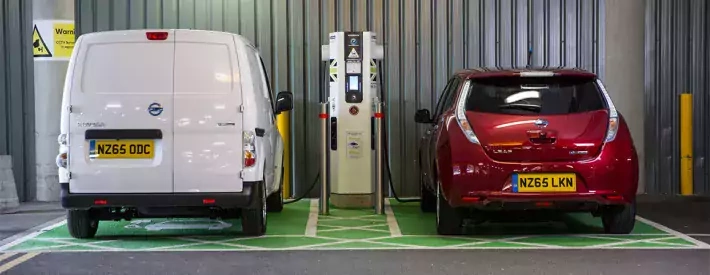How apprenticeships will adapt to meet the EV era

The government is banning sales of new petrol and diesel vehicles from 2030, so apprenticeships will need to be ready to give a new generation of workers the skills needed for the electrified era.
The ban on sales of new petrol and diesel cars from 2030 will require new, dedicated electric vehicle apprenticeships as vast swathes of the motor industry workforce will need to be retrained to stay ahead of the curve of technological change.
Apprenticeships will also be critical to training the next generation of industry leaders who will spearhead the digital revolution in motoring.
The UK ban on the sale of new petrol and diesel cars is designed to kick-start the electric vehicle market, which is growing but is still relatively small, and help the country reach net zero emissions by 2050, or eradicate its contribution to climate change.
Essential to the change
Mark Armitage, Head of Membership Products and Services at the IMI, says the sector will be key to the government’s promised “green industrial revolution” with up to 250,000 new jobs.
The IMI has long been shouting about the importance of preparing for the electric revolution, and its TechSafe campaign has a great deal of weight behind it.
Yet there is no dedicated electric vehicle apprenticeship in the sector, and a lack of consistent EV training and assessments across existing programmes, he says.
In England, a number of Apprenticeship Standards include rudimentary knowledge of new technology as a requirement of the job role, such as the standards in Motor Vehicle Service and Maintenance.
However, Armitage said there will be a widespread need for all employees operating in the sector to retrain to be fully aware of these technologies, including staff in sales and finance.
Manufacturers have been racing to drive down emissions due to regulation, and investing heavily in electric vehicles, but exposure to new technologies varies in the broader automotive sector that includes dealers, garages and haulers.
“While some vehicle manufacturers have used electric and hybrid technology for many years, the acceleration of new models in recent years has been unprecedented,” says Armitage.
“This has driven new requirements in knowledge and skills, from qualifying the customers’ needs at [the] point of sale, to changes in how vehicles are financed. Service intervals along with maintenance and repairs are also affected.
“Expect to see employers looking for support to ensure their employees are ready for change.”
Change is coming
The government along with the motor industry will need to design and implement brand new apprenticeships based on electric vehicles, agrees Sabina Hegarty, Managing Director of training provider Calibre Group Solutions.
“There are already training courses out there focussing on electric [vehicles], but with the number of trained technicians alone that will be needed, with new skills, knowledge and behaviour, this has to be addressed in large numbers,” she says.
“The whole thing has to be done in advance rather than behind the pace,” she adds.
“Apprenticeships have not been timely in their release in recent years, so some serious thought must go into this now for the sector to have any chance [of] coping with the demands of the future.”
But right now, most employers in the industry are still grappling with the manifold challenges stemming from the coronavirus pandemic, she adds.
“Everything is so upside down at the moment that most of our clients can’t think straight and are just trying to adapt from one government change to the next, and are under incredible stress trying to manage their workforce, livelihood and customers,” says Hegarty.
That said, as a training company, Calibre Group Solutions has started creating projects for apprentices to complete that explore future developments including EV adoption.
“If we get this young generation thinking about the future now, in a decade’s time, they may well be the managers that are recruiting apprentices to take on some of the challenges that they will face then,” Hegarty adds.




